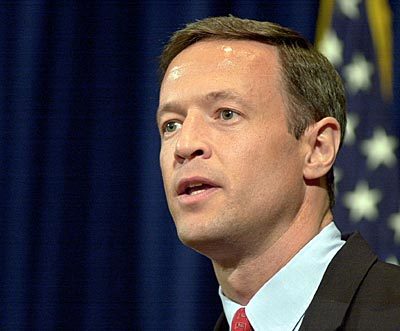Maryland Gov. Martin O’Malley (D) is seeking to raise revenue by applying the state’s 6 percent sales tax to motor fuel purchases. O’Malley and other proponents of the tax expansion say it would provide funding to help with road repairs and other transportation needs.
However, history shows large amounts of any additional monies “designated” for transportation use tend to go elsewhere, notes Christopher Summers, president of the Maryland Public Policy Institute in Rockland, Maryland.
“We’re adamantly opposed to it,” Summers says. “For years they’ve transferred a lot of money out of the transportation trust fund to the general fund in order to balance the budget. Maryland motorists have already paid for this.”
The diversions have been done to satisfy the state’s requirement for a balanced budget.
More than $1 Billion Shifted
According to Summers, state officials took $370 million from the transportation fund to cover other spending needs in Fiscal Year 2010. This was not a one-time move but a continuation of a multiyear trend that has resulted in some $1.1 billion being “borrowed” from the transportation trust fund, with no signs the money will ever be returned.
In a Maryland Public Policy Institute study, Rethinking Maryland’s Proposed Gas Tax Increase, released Feb. 1, transportation policy experts Wendell Cox and Ronald D. Utt conclude Maryland would have to raise its gas tax by at least 10 cents for two years to offset those recent diversions of transportation tax revenues.
“They’re using this as a cookie jar to cover other budget gaps,” Summers says. “This is a regressive tax; it will hit the poor and the middle class the hardest.”
‘Wrong Answer to an Overhyped Problem’
Rethinking Maryland’s Proposed Gas Tax Increase estimates those in the lowest income brackets would pay a share of their incomes seven times greater than would be paid by wealthier households.
Summers adds much of the state’s transportation money goes to projects that benefit relatively few citizens. For example, public transportation projects tend to receive priority on many funding requests, even though those projects tend to benefit the fewest taxpayers.
Proponents say the additional tax would create jobs, but Summers says any additional jobs would come at the expense of Maryland motorists, who will not have the estimated $491 million that would be raised from the tax to purchase other goods and services, purchases that would also support jobs.
“I don’t dispute that there are some transportation maintenance and building projects that need to be completed,” Summers said. “We don’t need a gas tax hike to fix those problems, however. Simply reprioritizing current funding would free up significant revenue. Raising the gas tax is the wrong answer to an overhyped problem. This proposal is nothing more than another attempt by the state to balance its wasteful budget on the back of its citizens.”




